Pupils are encouraged to continue their learning during the holidays. Research indicates that by the end of the long summer holiday pupils perform, on average, one month behind where they left off in the spring.
Here are some suggestions for activities that will keep children thinking mathematically while having fun and
learning new skills.
Click on an activity to see the resources that are free to use either alone or with parents and friends.
Improve Your Times Tables
If you do nothing else this holiday, practise your ability to recall multiplication facts.
Newspaper Type Puzzles
Here are some online interactive puzzles of the type often seen in newspapers.
Exam Preparation
For those who are preparing for forthcoming mathematics examinations.
-

Weekly Workout
GCSE-style questions for regular practice designed for students targeting grades 3 to 5 (C/D) of the GCSE Mathematics examination.
-
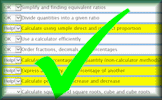
Exam Objectives Checklists
Interactive, printable examination learning objective checklists.
-
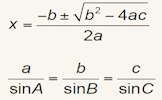
Formulae to Remember
The traditional pairs or pelmanism game adapted to test recognition for formulae required to be memorised for GCSE exams.
Mathematical Magic
Amaze your parents and friends with these Mathamagic tricks that are based on mathematical concepts.
Go On A Maths Adventure
Maths adventure games have been around since the first computers appeared in schools.
-

Tran Towers
An adventure game requiring students to solve puzzles as they move through the old mansion.
-

Tran Tunnels
A mini adventure game containing maths puzzles and problems. Find your way through the maze of tunnels to find Goldberg's magic harpsicord.
-

Pentransum
Mathematical questions with five possible answers. If you get 20 correct you can add your own question to the database.
Online Board Games
Whether you prefer the top hat or racing car you don't need tokens for online board games.
-

Mathopoly
A game of buying and selling property with maths questions thrown in for good measure.
-
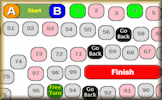
Dump-A-Dice Race
An online board game for two players involving prime and square numbers and making choices.
-

Hi-Low Predictions
A version of the Play Your Cards Right TV show. Calculate the probabilities of cards being higher or lower.
Develop Your Memory
Being able to memorise figures, names or concepts is an important skill which these activities develop.
Searching For A Strategy
Playing Maths games against parents and friends is always more satisfying with a winning strategy.
-
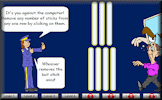
Nim
Nim is a mathematical game of strategy in which two players take turns removing objects from groups of objects.
-
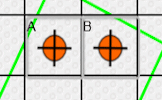
Tantrum
A game, a puzzle and a challenge involving counters being placed at the corners of a square on a grid.
-

Fifteen
A strategy game. Play against the computer to select three numbers that add up to 15.
Practical Activities
Get the scissors, glue sticks and rulers for some hands-on mathematical tasks.
-
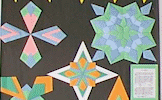
Kite Maths
Can you make a kite shape from a single A4 size sheet of paper using only three folds?
-
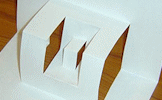
Paper Constructions
Practical mathematical skills are required to work out how to construct these three dimensional items from paper.
-
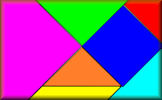
Tangram Table
Use the pieces of the tangram puzzle to make the basic shapes then complete the table showing which shapes are possible.
Computer Games
If your child has a computer, iPad or similar, these games have a mathematical link.
-
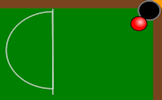
Snooker Angles
An online game for one or two players requiring an ability to estimate angles as bearings.
-
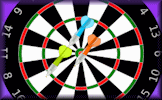
Digital Darts
An online darts game for one or two players requiring skill, strategy and mental arithmetic.
-
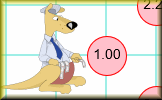
Where's Wallaby?
Find the hidden wallaby using the clues revealed at the chosen coordinates.
Mathematical Vocabulary
All about the words used in Maths. Keep a dictionary close at hand.
How About A Quiz?
Enjoying a quiz seems to be a popular activity and there's nothing better than a Maths quiz.
Another Point Of View
A selection of illusions followed by an exercise on matching the view to the direction.
-
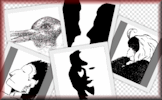
First Impressions
This activity will collect data about your first impressions of some optical illusions. You can then analyse the data to come to your own conclusions.
-
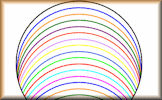
Optical Illusions
Don't let your brain be fooled by these geometric optical illusions in this online quiz.
-
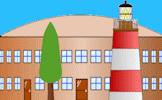
Plans and Elevations
Interpret plans and elevations of three dimensional shapes.
Trains, Cars and Boats
Test your driving skills with these dilemmas and tests of skill.
-
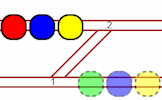
Shunting Puzzles
Move the trams to their indicated parking places in the shunting yard as quickly as possible.
-
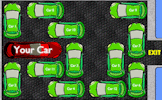
Car Park Puzzle
Can you get your car out of the very crowded car park by moving other cars forwards or backwards?
-

Cliff Diving Monkeys
Test your timing skills by clicking on the monkeys so that they jump off the cliff at just the right time to land in the boat.
Programs And Codes
Cracking codes and writing computer programs are skills required for these activities.
-

Online Logo
An online version of the Logo programming language with 30 mathematical challenges.
-
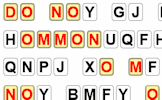
Code Cracker
Crack the code by replacing the encrypted letters in the given text. There are lots of hints provided about code breaking techniques.
-
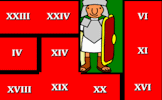
Roman Numerals Jigsaw
An online interactive jigsaw puzzle of a grid of Roman numerals.
Amazing Mazes
You can't get physically lost in these mazes but you may be at a loss mentally.
-
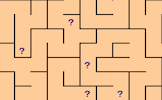
Maze
Each visitor to this page has a unique maze constructed for them to find their way through answering mathematical questions on the way.
-
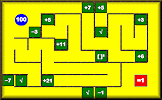
Bidmaze
Find your way through the maze encountering mathematical operations in the correct order to achieve the given total.
-
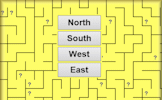
Navigation NEWS
Each visitor to this page has a unique maze constructed for them to find their way through answering questions about bearings along the way.
Steady Hand
If you have a steady hand and nerves of steel you may just be able to do these challenges.
-
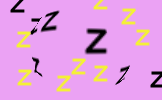
Fizz Buzzer
The digital version of the popular fizz buzz game. Press the buzzers if they are factors of the counter.
-
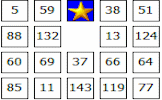
Tables Grab
A one or two player game. The objective is to grab all the multiples of the chosen times table faster than the other player.
-
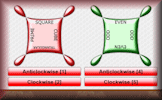
Watsadoo
Rotate the cogs to catch the flying numbers in the correct sections.
Arty Maths
Exercise both sides of your brain and show your artistic side with these beautiful activities.
-

Mystic Rose
Investigate the properties of the Mystic Rose by using this interactive diagram.
-

Tessellations
Drag the shapes onto the canvas to create tessellating patterns then try the tessellations quiz.
-

Online Curve Stitching
Create curves with straight lines using this online alternative to needle and thread.
Investigations
Mathematical investigations are open-ended and could take quite a long time.
-
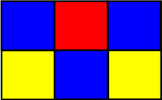
Design a badge
How many different badges can you make using three different coloured squares put together to make a rectangle?
-

Dice Investigation
Throw two dice and multiply the scores. Investigate the different products you can obtain. What about adding? What about using three dice?
-
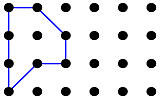
Polygon Areas
Investigate which polygons have an area of 4 square units on this interactive dotty grid.
Outside Thinking
Even if the weather is not too good you can find a great deal of Maths outside the classroom.
-

Outdoor Maths
Suggestions for mathematical activities that can be done outside the classrooms when the weather is too good to resist.
-
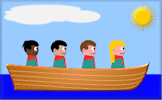
Scouts in Boats
Arrange a rota for the Scouts to travel in boats so that they are with different people each day.
-
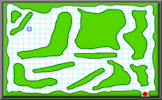
Vector Maze
Use vectors to navigate through a maze by the shortest distance.
Need for Speed
Here are three activities that come with a timer. How fast can you do these activities?
More Magic
The magic just keeps on coming, Here are three variations on the magic square theme.
-
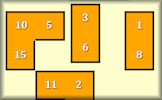
Magic Square Jigsaws
Interactive jigsaw puzzles of four by four magic squares.
-
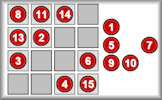
Perfect Magic Square
Arrange the sixteen numbers on the four by four grid so that groups of four numbers in a pattern add up to the same total.
-
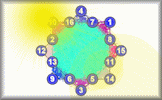
Octagram Star
Arrange the sixteen numbers on the octagram so that the numbers in each line add up to the same total.
Numeracy
Regular practice makes perfect. Make a habit of doing some number work at the same time each day.
-
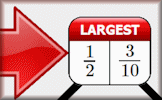
Fickle Fractions
Compare pairs of fractions to identify the largest or smallest in order to move through the maze.
-
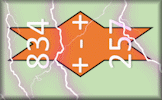
Awe-Sum
Arrange the given digits to make six 3-digit numbers that combine in an awesome way.
-
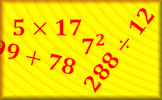
Numbasics
A daily workout strengthening your ability to do the basic mathematical operations efficiently.
Fab Fun
Maths can be fun and when it is you'll spend more time improving your mathematical ability.
Strategy Games
The more you play these games, the more you will start to develop winning strategies.
-

Ultimate Noughts and Crosses
A game requiring you to devise a strategy far more complex than that required for the standard game.
-
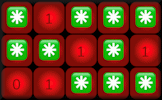
The Rowcol Game
A strategy game based on claiming tokens in specific rows and columns.
-
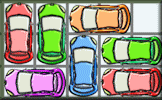
Perpendicular Parking
A strategy game requiring players to park cars in a perpendicular arrangement.
Pictures and Patterns
Mathematics embraces patterns and can produce beautiful pictures.
Thinking Games
These thinking games are best played with a friend or family member. You will need to do a lot of thinking!
-
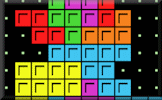
Transformation Tetris
Develop your skills translating and rotating shapes in this fast paced classic game.
-
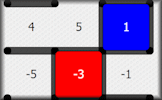
Boxed In Numbers
The classic dots and boxes game with the addition of some positive and negative numbers which determine your score.
-
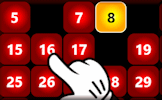
Flabbergasted Game
This game for one or two players is an exciting challenge to demonstrate an understanding of factors and multiples.
Favourite Puzzles
Here are some of my favourite puzzles. How many levels can you solve to earn virtual trophies?
Favourite Games
Here are some of my favourite games. Challenge your parents or friends to play.
-

Inertia Racetrack
A racing game for two players in which they use vectors to control the movement of their cars.
-
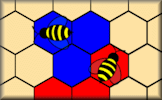
Hexpand
A strategy game - expand your collection of hexagons to block your opponent.
-
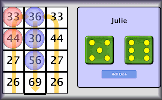
Remainder Race
A game involving chance and choice requiring an ability to calculate the remainder when a two digit number is divided by a single digit number.
School Work
Be specific about the work you do so that it closely matches your school curriculum.
-
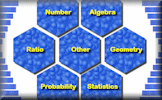
Maths Map
Work your way through this curriculum map to find the topics you have been doing at school.
-
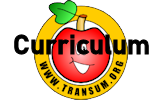
National Curriculum
This is the document that lists all of the Maths concepts pupils study in school up to Year 11.
-
If you know exactly what maths activity you are looking for you can search for it here:




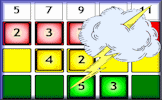
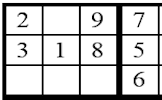
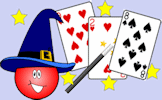
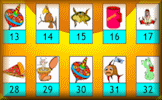

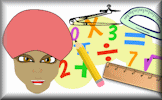
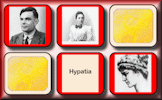
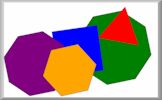

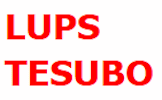


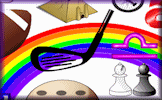


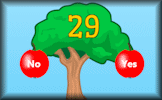
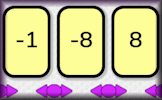
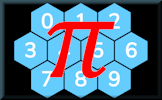

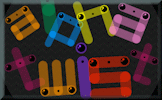
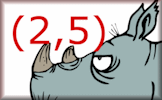
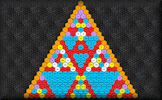
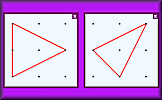

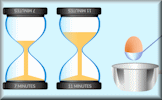
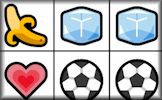
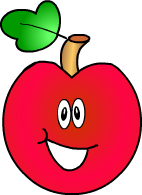

ChatGPT,
Saturday, July 29, 2023
"Here are some maths-related activities that a student might find interesting and worthwhile during the summer holidays:
1. Maths Puzzles: Spend some time with Sudoku, crosswords, or logic puzzles. There are also numerous books and websites dedicated to math puzzles that can help sharpen your problem-solving skills.
2. Coding: Coding is a great way to apply mathematical concepts. Platforms like Scratch or Codecademy can help you learn languages like Python or JavaScript. Coding challenges on sites like Project Euler combine programming and mathematics.
3. Online Maths Courses: Use online learning platforms like Khan Academy, Coursera, or edX to delve deeper into specific math topics you're interested in, or learn new ones that might not be covered in your school curriculum.
4. Maths Competitions: Participate in online math competitions or challenges. Websites like the UK Mathematics Trust (UKMT) host various competitions that can be fun and challenging.
5. Maths Books: Read books that delve into the beauty and complexity of mathematics. Some recommendations include "The Man Who Knew Infinity" by Robert Kanigel, "Fermat's Enigma" by Simon Singh, or "The Number Devil" by Hans Magnus Enzensberger.
6. Maths Modeling Projects: Choose a real-world phenomenon and try to model it using mathematics. This could be something like predicting the growth of a plant, analysing the population dynamics of a city, or modelling the spread of a disease.
7. Maths in Nature: Explore the presence of math in nature. This could be studying the Fibonacci sequence in flowers, exploring fractals in ferns or trees, or understanding the symmetry in snowflakes.
8. Maths Documentaries: Watch documentaries or Ted Talks that focus on mathematics. This can provide a different perspective and showcase the real-world applications of mathematics.
9. Maths Games: Play math-related games that help reinforce concepts while being fun. Games like chess can help improve strategic thinking and logic skills.
10. Create a Maths Blog/Vlog: Share interesting math facts, concepts or problems you've solved. This can help you consolidate your learning and might also help others.
These activities can not only strengthen maths skills but also foster an appreciation for the subject in a fun and engaging way."
Bing,
Saturday, July 29, 2023
"Hello, this is Bing. Here are some interesting and worthwhile mathematical activities that a UK Secondary School student could do at home during the long summer holidays:
1. Baking a cake involves measuring and shape
2. Measuring children’s height as they grow is also fun
3. Singing ‘Ten green bottles’ is maths.
4. There is counting and pattern-forming in knitting.
5. The ancient Japanese art of origami is mathematical.
6. Exploring the concepts of probability and percentage with dice, cards, coins or spinners.
7. Practising mental arithmetic skills with online games or apps
8. Creating and solving puzzles or riddles that involve logic, algebra or geometry
9. Investigating the properties of shapes and angles with paper, scissors, ruler and compass.
10. Learning about different number systems, such as binary, hexadecimal or Roman numerals
I hope you find these activities enjoyable and educational. Have fun with maths!"
Bard,
Saturday, July 29, 2023
"Here are 10 interesting and worthwhile Maths activities that a student could do at home during the long summer holidays:
1. Solve some challenging Maths puzzles. There are many websites and books that offer a variety of Maths puzzles, from simple logic puzzles to more challenging ones that require problem-solving skills.
2. Learn about a new branch of Maths. There are many different branches of Maths, such as algebra, geometry, calculus, and statistics. If you're interested in a particular branch of Maths, you can find books, websites, and online courses that can teach you more about it.
3. Create a Maths project. This could be anything from designing a Maths-themed game to creating a Maths-based piece of art. This is a great way to apply your Maths knowledge in a creative way.
4. Volunteer your Maths skills. There are many organisations that could benefit from your Maths skills, such as local schools, charities, or community centers. You could help tutor students, develop Maths curriculums, or even just help out with administrative tasks.
5. Read Maths books and articles. There are many great Maths books and articles available that can help you learn new things and expand your knowledge of Maths. You can find these at your local library, bookstore, or online.
6. Watch Maths documentaries and videos. There are many great Maths documentaries and videos available that can teach you about different branches of Maths in an engaging way. You can find these on YouTube, Netflix, or other streaming platforms.
7. Play Maths games. There are many great Maths games available that can help you improve your problem-solving skills and learn new concepts. You can find these at your local toy store, online, or even on your phone or tablet.
8. Make a Maths-themed playlist. This is a fun way to listen to music while also learning about Maths. You could create a playlist of songs with mathematical lyrics, or you could find songs that have been inspired by Maths.
9. Start a Maths blog or vlog. This is a great way to share your love of Maths with others. You could write about your favorite Maths topics, share your thoughts on current events in Maths, or even just post interesting Maths facts.
10. Attend a Maths workshop or conference. This is a great way to learn from experts in the field and meet other people who are interested in Maths. There are many different workshops and conferences held throughout the year, so you're sure to find one that interests you.
I hope this gives you some ideas for fun and educational Maths activities to do during the summer holidays."